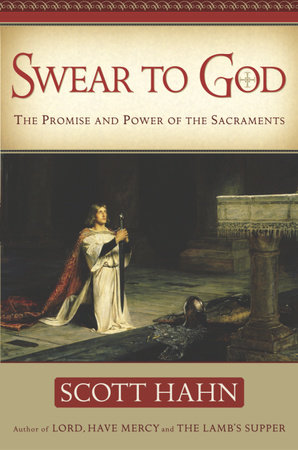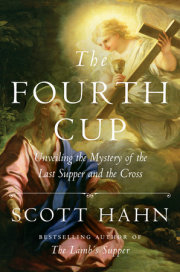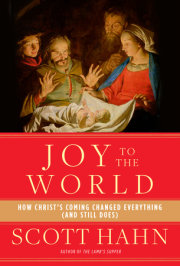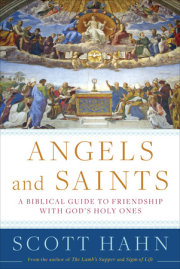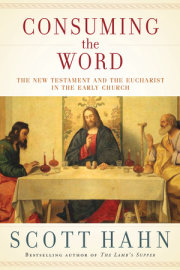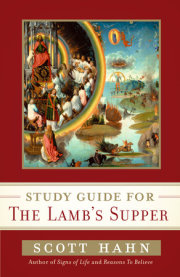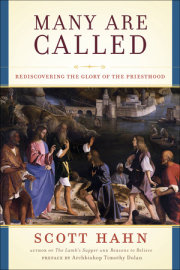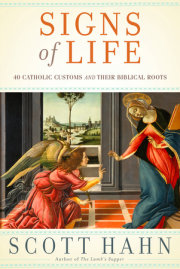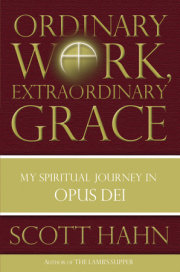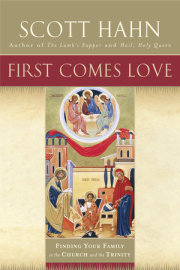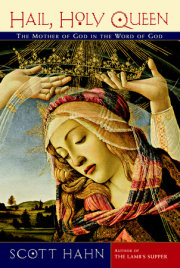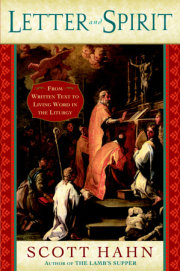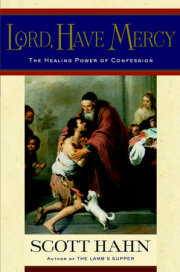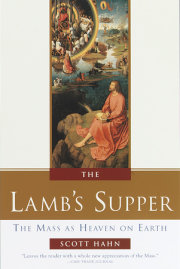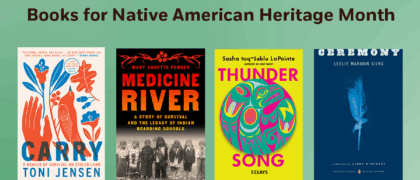CHAPTER 1
"A Bore,"
I Swore
I was the kind of first-year graduate student who believed in his own resume. I had arrived, on scholarship, at a prestigious evangelical seminary after a stellar undergraduate career--and in the first semester of my master's program, I'd scored straight As.
It was second semester now, and I walked the scenic hundred acres of Gordon-Conwell Theological Seminary as if they were my inheritance. Beside me walked my bright and beautiful bride, who was also a graduate student. Kimberly and I were newlyweds, and when I held forth on any subject, her face radiated love, intelligent interest, and, usually, perfect agreement. Her loveliness and her love for me seemed a visible sign of God's blessing upon my life--and a seal on my high self-estimation.
No one was as sure of the law of gravity as I was sure of the soundness of my judgments.
One afternoon, Kimberly and I were leaving class when we saw a friend of ours in the building's vestibule. George was a good fellow. He was a highly motivated student, like me. And he considered himself a staunch Calvinist, though I rated myself even stauncher. George was also a voracious reader, like me. So whenever I saw him with new books, I'd ask him for titles. That afternoon, he was carrying books. "So, George, what are you reading," I asked, "anything good?"
His eyes lit up. "Yes, Scott!" And he shook a book out from the middle of the pile. "Calvin on the sacraments."
I took the book and looked at its drab cover: Calvin's Doctrine of the Word and Sacraments, by Ronald S. Wallace. As surely as George's eyes lit up, mine must have dimmed. I handed it back to him and blurted out the first thing that came to my mind: "Frankly, George, sacraments bore me."
I was merely speaking honestly. Though I didn't care to admit it, I often found myself distracted in church, my mind wandering, when the time came to administer baptism or the Lord's Supper. Ritual was not the thing that got me up early and kept me up late. I was hungry for dynamic biblical teaching and preaching; and sacraments suggested, to my mind at least, the exact opposite: a mechanical way of approaching religion--ritualistic, ceremonial, bordering on superstitious.
In any event, the sacraments were peripheral to most Protestant discussions of salvation and justification, the matters that really interested me.
Sacraments--well, frankly, they bored me, and I said so.
Bored Again
I hadn't meant to say anything rude or scandalous. But I could see right away that I had. No one responded. Kimberly just arched an eyebrow in silent shock. George took his book back with a polite smile and a shrug and said he had to be going.
Kimberly and I continued out the door and on to dinner. I asked her why my simple statement had been such an immediate conversation-stopper.
She looked at me with a pained smile and repeated what I had said: "Sacraments . . . bore me." After a pause, she added, "Scott, I don't think it's safe to say that."
It helped that she was a pastor's daughter. She went on to explain that, no matter how I felt about the sacraments, it was clear from the Scriptures that Jesus Christ had established both baptism and the Lord's Supper. She reminded me that, in the previous semester, one of my favorite professors, M. G. Kline, an Old Testament scholar, had convinced us to see the sacraments as "covenant oaths" that sealed and renewed our personal relationship with Jesus Christ. To dismiss these oaths was to flirt with ingratitude and maybe even blasphemy.
Kimberly brought my lesson to a close with a smile and a pun. "Don't be surprised, Scott," she said, "when you go before the Lord, if you discover that sacraments truly 'bore' you--all the way to heaven!"
I wasn't so sure. But still, I'd begun to trust her intuitions. After finding a copy of the book that George was reading, I discovered why he was so excited. Over the following months, I found myself learning more about the sacraments in dynamic terms. I started to see their drama, passion, grandeur, splendor, promise, and power.
I soon ranked the Wallace book among my favorites. A few years later, when I was a Protestant minister teaching in a Protestant seminary, I even used it as a course textbook.
Signs, Signs, Everywhere a Sign
My education in the sacraments was only beginning. As a Protestant, I recognized only two of the seven sacraments observed by the Catholic Church: baptism and the Lord's Supper, and I knew them only in a limited way, as Calvinist doctrine stops far short of the "realism" that marks the Catholic tradition of the sacraments.
Still, as I read the Bible, I began to glimpse something more. Since Kimberly had shaken me out of my complacency, I was struck by certain details I had always glossed over. Now I noticed that God had a particular and characteristic way of dealing with His people down through the ages. He made covenants with them, and He always sealed those covenants not with an abstract lecture on the nature of salvation, obligation, and law but with an outward sign, a physical sign. When God made His covenant with Noah, He set a rainbow in the sky as a "sign of the covenant" (Gen 9:12). When God made His covenant with Abraham, He instructed the patriarch to have "every male among you . . . circumcised" (Gen 17:10). When God made His covenant with Moses, Moses extended it to the people by sprinkling them with the blood of sacrificial animals: "Behold the blood of the covenant which the Lord has made with you" (Ex 24:8).
These words and signs in the Old Testament would come to fulfillment in the New Testament. Jesus would speak of His saving work as a "new covenant in My blood" (Lk 22:20), and He would announce this at the moment He established the sacrament of the Eucharist, or the "Lord's Supper," as we Presbyterians called it.
Moreover, Jesus spoke of the sacraments as essential to salvation. Of baptism, He said, "unless one is born of water and the Spirit, he cannot enter the kingdom of God" (Jn 3:5). Of the Eucharist, He said, "unless you eat of the flesh of the Son of man and drink His blood, you have no life in you" (Jn 6:53).
The sacraments, then, were anything but boring. They were actions with ultimate consequences. They were matters of life and death, heaven or hell. God Himself spoke of them only in the most dramatic of terms. Jesus' apostles remained faithful to His example, and they too put matters starkly. St. Paul warned that Christians who lacked proper reverence for the sacraments brought divine judgment upon themselves and were justly punished with illnesses and even death (see 1 Cor 11:29-30). Kimberly had good reason, then, to wonder about the safety of someone who belittled the sacraments, especially when that someone was an aspiring theologian--and her husband.
Get Real
Because of a providential encounter with a fellow student, I learned to read the Scriptures in a new way, a sacramental way. And I could not help but be changed by the sacramental story I began to piece together. The Bible, in both the Old and New Testaments, seemed to speak of God's sacraments with a powerful realism. These actions were symbolic, but they were more than just symbols. They were memorials, but they were not just reminders. They were rites of passage, but they were more than just rituals. The sacraments were divine actions on the order of the creation of the universe. They marked the moments in history--world history, salvation history, and personal history--when God was making a new start with His people.
This idea pervaded the Scriptures. And Kimberly and George seemed to hold it instinctively; that's what made them wince when I professed my boredom with sacraments. Yet, as I studied the matter, I was troubled that I could not find support for such "sacramental realism" in the works of my Protestant forebears or their most ardent contemporary followers.
It should have been easy, then, for me to dismiss my "discovery" as a fantasy, a false reading. But I soon began to find that sacramental realism expressed in other, unexpected places. I found it everywhere, for example, in the writings of the earliest Christian writers, the fathers of the Church. The founder of my particular kind of Protestantism, John Calvin, had placed a high value on the testimony of the fathers. So I felt comfortable approaching them for light on the Scriptures. I began to notice, however, that the early-Christian view of the sacraments was anything but Calvinist--yet it seemed to be more compatible with the Bible.
My reading in the fathers eventually led me out of the ancient world, as I found the biblical teaching on the sacraments reflected in the place I least expected: the teaching and practice of the Roman Catholic Church.
Since being "born again" as a teenager, I had been a devoted son of the Protestant Reformation. Indeed, I longed for the day when I would preach the Gospel from a pulpit in a Presbyterian church. I believed the doctrines of Calvin and Luther--and their rejection of Catholicism--to be a recovery of true biblical principles. Everything I knew about Catholic doctrine I had learned second- or third hand, from the Catholic Church's opponents.
Worshipping with Heart
But I was about to learn the truth, a truth that many millions of holy and humble souls had learned long before me. It was a truth that even some Protestant theologians had reluctantly come to admit. The nineteenth-century Lutheran scholar Julius Wellhausen said that "Protestant worship is at bottom Catholic worship . . . with the heart taken out of it." That heart, said the Catholic theologian Karl Adam, is "the Catholic's experience of reality in the great Mystery, his assurance that in it the grace of Christ really and truly enters our world of space and time and touches his soul."
Karl Adam summed up the principle as "the idea of real divine grace sacramentally conveyed"--in baptism, in the Mass, in confession, in confirmation, in marriage, in the ordination of priests, and in the anointing of the sick. He called it, succinctly, "the Catholic sacramental idea." He could just as accurately have called it "the biblical sacramental idea."
In a matter of a few years, I would admit that the two were identical, and I would be received into the Catholic Church. In a few more years, my wife, Kimberly, would follow.
We found in the sacraments what Catholics take in with mother's milk. After much searching, we found the biblical and Catholic "sacramental idea" that ordinary parishioners learn from earliest infancy, as they see the sights, hear the sounds, taste the flavors, feel the texture, and smell the aromas of the seven sacraments. God makes His covenant with Catholic Christians--as He did with Noah, Abraham, Moses, and David--using material signs: water and oil, bread and wine, a touch of the hands upon the shoulders, an audible word of blessing.
Still, I wouldn't be surprised, today, to learn that more than a few Catholics feel what I felt, so long ago, as a Calvinist. They find sacraments boring, but only because they haven't learned (or perhaps they've forgotten) the splendor and the drama of Christ's saving doctrine. They've stopped noticing how the sacraments have borne them up till now and promise to bear them to heaven.
On a winter afternoon, on the lovely grounds of that New England seminary, Kimberly and George had given me a first lesson, a basic lesson, in the meaning of the sacraments. I had prided myself as a prodigy in theology. God showed me that I was still a beginner and that I had much learning and growing to do.
There were many more lessons to come, and those are the lessons that fill the rest of these pages. Some I learned from books. Some I learned through experience, conversation, and tears.
In the Catholic Church, I learned what sacraments really are and how Christ established them. I learned that at the heart of every biblical covenant there is a solemn and sacramental oath. I learned that these oaths contained real power to change lives and change history. And I learned that the sacraments still pack that power today.
Copyright © 2004 by Scott Hahn. All rights reserved. No part of this excerpt may be reproduced or reprinted without permission in writing from the publisher.

